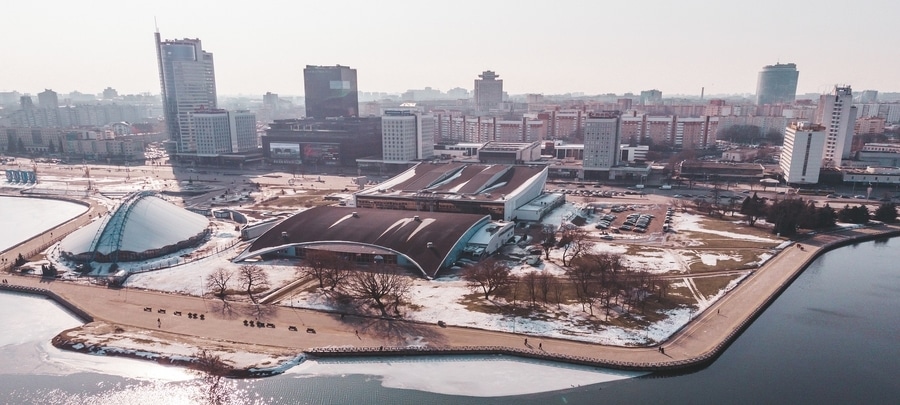

Home to a population of 9.4 million, Belarus stands as a trade hub due to its advantageous location, enabling companies to develop partnerships with strategic investors from the highly developed markets of the EU and CIS countries. In recent years, Belarus has been building its reputation as an attractive business destination, through continuous reforms to adjust to international standards. Businesses interested in the Eurasian region have great opportunities in Belarus where they can benefit from modern infrastructure, highly qualified human resources as well as competitive investment and tax climate, adjusted to each of the six free economic zones of the country.
Drinking culture
Drinking culture and preference varies according to country or region between wine, beer and spirits. Situated in the Eastern part of Europe, Belarusians are into strong alcoholic beverages based on vodka, but as in many countries traditionally embedded in spirit drinking, beer, the most popular alcoholic drink worldwide, is also a supplementary choice. The popularity of beer can be attributed to the low cost of domestic production and increased consumption by younger people.
However, tradition does not necessarily reflect only current drinking habits. Wine, brandy, or champagne are also popular with Belarusians today. In the past, wine consumption was not common as the climate is unfavourable to supply enough grape volume for the wine industry while cultivating grapes was a sign of wealth. Today, the majority of wines are imported from countries like Moldova, the largest wine supplier, followed by France, Spain, Germany or Ukraine, at import prices that vary according to the country of origin.
Consumers preference
It is important to note that alcohol drinking patterns differ from urban to rural Belarus. Alcohol consumption is heaviest in Minsk and surrounding areas, but hazardous drinking remains a significant issue in rural areas. Regarding beverage preference, both men and women choose vodka, beer, fruit wine, fortified fruit wine, and dry wine, however, men are heavier consumers than women. In terms of price-quality balance, Belarusians prefer lower, affordable price points over high quality, reflecting their desire for value for money.
Healthy trend & premiumization from western influence
Although Belarus remains a heavy spirit drinking country, recent trends show a shift towards the Mediterranean preference of wine consumption. This recent positive shift towards wine, a healthier alternative of alcoholic drinks, show Belarusians` desire towards a healthier lifestyle and a refined, diverse taste. Moreover, recent economic development in Belarus, together with Western and global trends has pushed the middle class into being more interested into a sophisticated drinking culture, by exploring alcoholic beverages outside the borders of their country,
Market issues
The alcohol policy
Alcohol-induced mortality and other related alcohol issues could be observed more in the Eastern part of Europe, where consumption rose quickly after the disintegration of the Union of Soviet Socialist Republics. Despite numerous government regulations to control the problem, in 2010, Belarus reached the top position of the most drinking countries in the world, with an average of 17.5 litres of alcohol per year, compared to the global consumption levels of around 6.5 litres. In recent years, alcohol consumption has been declining as the government has been attempting to combat the alcoholisation of Belarus through additional regulations and penalties for hazardous alcohol consumption and restrictions on sales and advertisement.
Producers that seek to enter the Belarusian market will have to face a competitive landscape regarding alcohol prices, as the country has more affordable price points than the neighbouring countries, as a result of failed measures to raise alcohol taxes. Moreover, exporters are also hindered by heavy bureaucracy and government-imposed import quotes regulated through state-owned companies.
Homemade drinks & Ilegal smuggling
Producers interested to export wine to Belarus should also take into consideration the risk of the high availability of homemade alcoholic beverages, who although are more health-damaging due to poorer quality than commercial drinks, are still consumed in many rural areas. Popular among these homemade drinks include homemade wine, samogon or surrogate alcohols, but another issue may be counterfeit vodka was also reported to be bought on the black market.
Finding and dealing with wine importers in Belarus
Producers looking for success in the country need to find the right wine importers and distributors from Belarus, and have vast opportunities for business and cross-border traffic with the neighbouring countries, as the Belarusian market is made up of several pan-Baltic companies.
Wine Importers from Belarus:
Belvingrupp
Address: St. Nakhimova, 20, Building 402 Minsk
Phone: +375 17 388-12-05
Website: bvgroup.by
Garsia Joint Lcc
Address: Platonova Str., 34-20 Minsk, Minsk
Phone: +375 17 388-12-03
Website: garsia.by
Belkoopvneshtorg Belkoopsoyuz
Address: Ul. Babushkina, 62, Room 215 Minsk
Phone: +375 17 367-90-51
Website: bkvt.by
Producers interested in the Belarusian market can find a database with top wine importers, distributors and retailers here.





